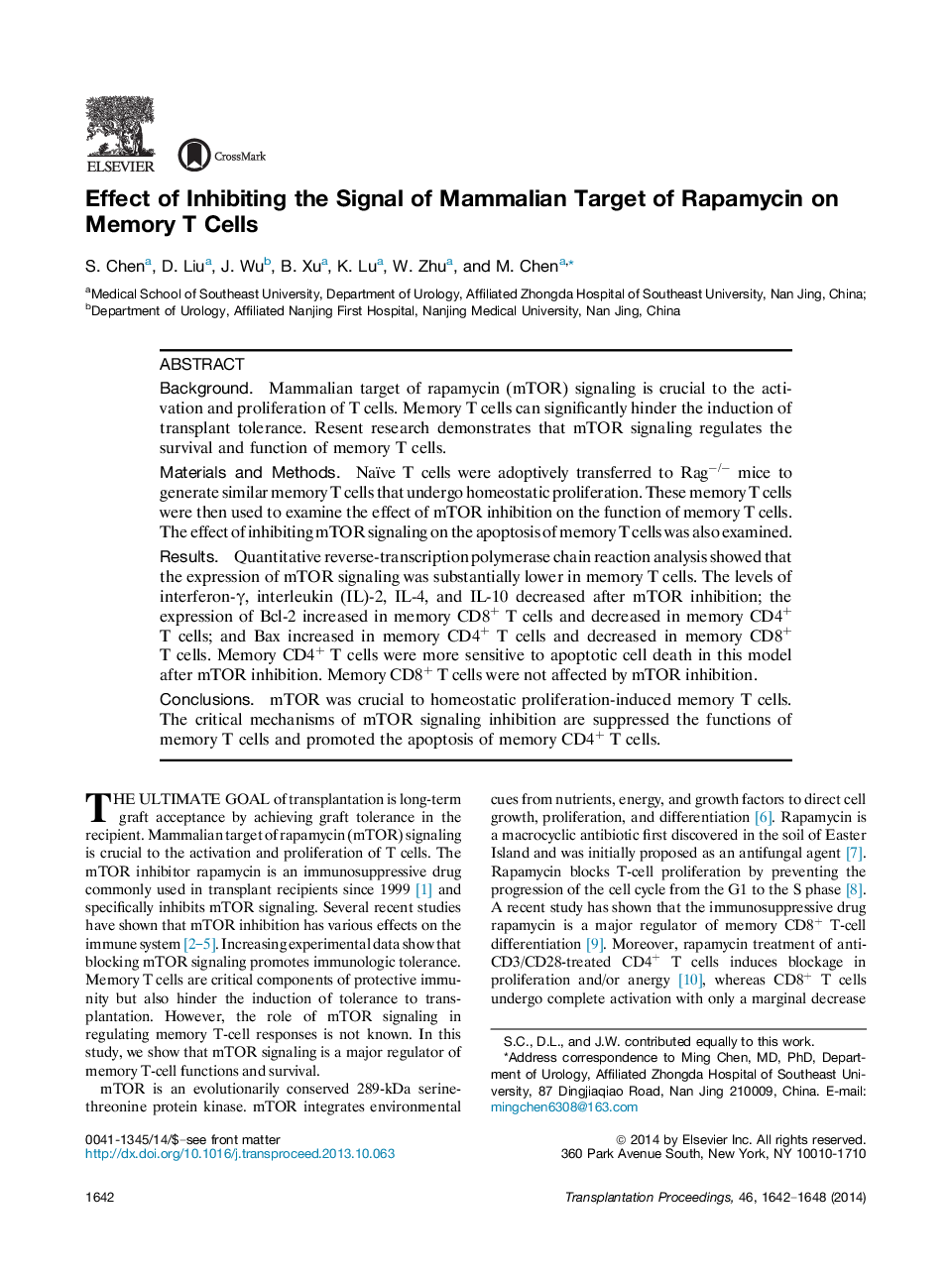| Article ID | Journal | Published Year | Pages | File Type |
|---|---|---|---|---|
| 6246348 | Transplantation Proceedings | 2014 | 7 Pages |
BackgroundMammalian target of rapamycin (mTOR) signaling is crucial to the activation and proliferation of T cells. Memory T cells can significantly hinder the induction of transplant tolerance. Resent research demonstrates that mTOR signaling regulates the survival and function of memory T cells.Materials and MethodsNaïve T cells were adoptively transferred to Ragâ/â mice to generate similar memory T cells that undergo homeostatic proliferation. These memory T cells were then used to examine the effect of mTOR inhibition on the function of memory T cells. The effect of inhibiting mTOR signaling on the apoptosis of memory T cells was also examined.ResultsQuantitative reverse-transcription polymerase chain reaction analysis showed that the expression of mTOR signaling was substantially lower in memory T cells. The levels of interferon-γ, interleukin (IL)-2, IL-4, and IL-10 decreased after mTOR inhibition; the expression of Bcl-2 increased in memory CD8+ T cells and decreased in memory CD4+ T cells; and Bax increased in memory CD4+ T cells and decreased in memory CD8+ T cells. Memory CD4+ T cells were more sensitive to apoptotic cell death in this model after mTOR inhibition. Memory CD8+ T cells were not affected by mTOR inhibition.ConclusionsmTOR was crucial to homeostatic proliferation-induced memory T cells. The critical mechanisms of mTOR signaling inhibition are suppressed the functions of memory T cells and promoted the apoptosis of memory CD4+ T cells.
